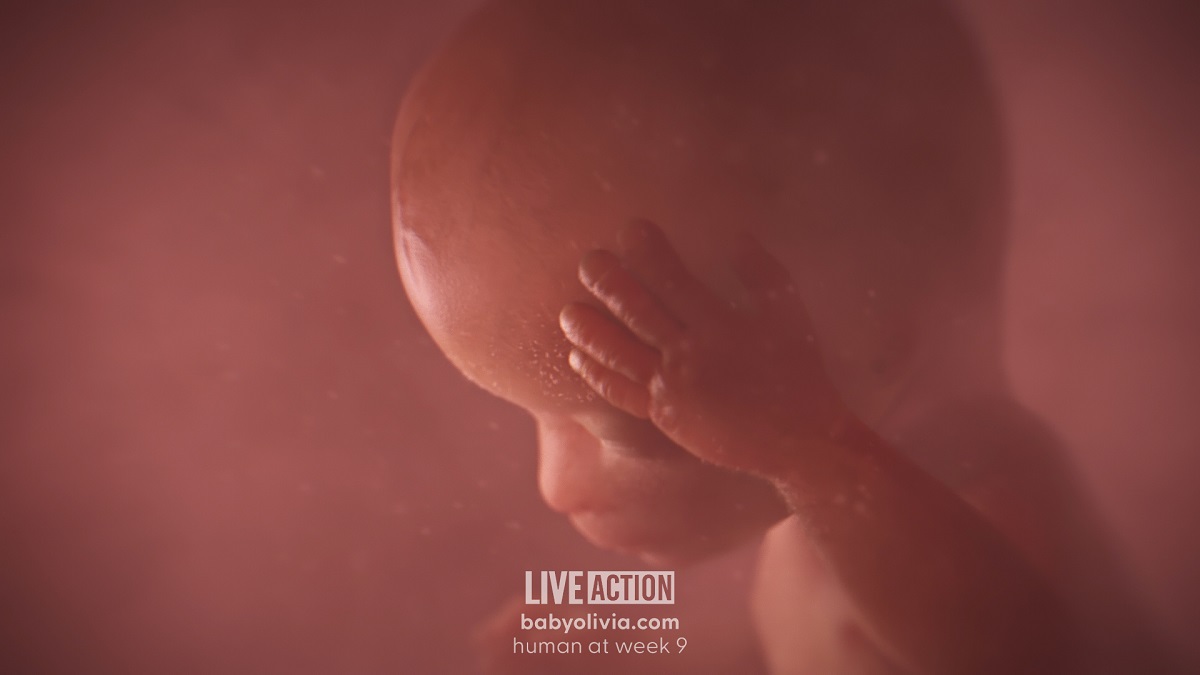While there are many different pro-abortion arguments that defend the taking of a preborn life while attacking the pro-life position, an op-ed published in the Los Angeles Times takes a less-than-typical approach: claiming that pro-lifers’ beliefs in the human dignity and rights of the preborn baby are rooted in obscure medieval theological ideas. But the argument turns out to be incoherent, inconsistent, and just plain wrong.
A fundamentally ableist philosophical foundation
Science writer and artist Margaret Wertheim attempts to claim that pregnant women cannot be neatly categorized, and she searches for a way to tackle the “problem” of whether a “clump of cells” can be a person or a distinct human being. Using Descartes’ famous “I think, therefore I am” proposition as an example of the modern Western understanding of a human person, Wertheim defines a “distinct human being” as an independent agent capable of making moral judgments.
“A small bunch of cells clearly doesn’t have free will. It doesn’t have a will at all. It can’t make moral or intellectual choices. It doesn’t yet have a brain, let alone a mind,” Wertheim concludes. “If, as Christianity and modern Western philosophy predicate, humanness requires mental agency, in what sense is a cluster of cells a human being?”
The implication is clear: preborn babies are not aware of themselves, lack mental agency, and therefore cannot be distinct human beings.
But Wertheim’s misconception of the human person is a fundamentally ableist position. She attempts to defend her position by alluding to her understanding of Catholicism and its emphasis on the importance of making moral decisions. Yet the reality is that Catholicism has never had an ableist understanding of human dignity. Personhood, and a human’s inherent dignity, for the Catholic Church, is dependent not on agency or cognitive abilities but on the fact that every human person is made in the image and likeness of God – something held since the very earliest days of Christianity.
Like other ableist-based positions, Wertheim’s view of personhood ultimately has drastic implications. Making personhood dependent on mental agency and one’s ability to make moral decisions would, as Secular Pro-Life points out, “if applied consistently[,] deny personhood to already born groups of humans we universally recognize as morally relevant and worthy of protection, such as newborns, people with disabilities, and other vulnerable groups.”
Dismissing the science of fetal development as a medieval obsession with bodies
Wertheim claims pro-lifers are animated by a “fanatical desire to draw irrevocable distinctions around personhood and bodies,” like medieval Christians engaging in esoteric theological distinctions. To Wertheim, “We might all agree that at some point the fetus becomes an independent being. But when does this differentiation occur? Certainly not at conception.”
Wertheim’s denigration of pro-lifers as obsessed with bodies allows her to ignore the physical evidence of the preborn baby’s body – clear from the moment of conception – by waving it off as a medieval theological obsession.
READ: The Supreme Court declines to hear case regarding personhood of preborn children
Far from being rooted in medieval theology, however, pro-lifers base their belief in the humanity of the preborn baby on the science of fetal development. Scientific observation shows that fertilization is precisely the moment a preborn baby becomes an independent being. At the moment of fertilization, a human person’s ethnicity, hair color, gender, eye color, and other distinctly individual traits have been written in a unique genome. A mere three weeks after fertilization, a heart begins to beat, and organs begin to develop.
While the author’s ideology leads her to dismiss scientific evidence as medieval theological speculation, the pro-life take is fundamentally pro-science. Pro-lifers respect what scientific study of the body at its earliest stages of development can tell us about the origins of human life. The preborn baby’s body – at the fetal, embryonic, or any other stage of development – gives irrefutable proof that a genetically distinct human being is present in the womb.
Feigned ignorance about the reality of a pregnant woman
Wertheim asserts that it is impossible to determine whether “the mother-fetus complex” is one person or two people, and instead writes off the question as misogynistic. While she concedes that a fetus “at some point” becomes “an independent being,” she is simply not interested in finding out when. Wertheim claims that even asking this question comes from a male-centric point of view.
Wertheim’s thought process is incoherent and vague. Pro-lifers look to the science and facts about the development of the preborn baby starting at the moment of conception to deduce that he or she is a unique human person. Wertheim’s claim that “a person bearing a child is at once an individual and a collective” is correct, but not for the reason she thinks. The fact is that a collective requires at least two individuals.
Given that the continuation of humanity relies on reproduction, it would be bizarre if no one over thousands of years of human history, philosophy, and religion had ever come to grips with what she calls “the mother-fetus complex.” Nonetheless, the author claims that a pregnant woman “does not fit comfortably into either the Catholic or Cartesian concepts of an independent agent,” as if Catholicism had never considered the existence of pregnancy. This is patently untrue, as attested to by a long tradition of reverence for the Incarnation of the Christ child in his mother’s womb, and the Church’s reverence from conception (fertilization) to natural death.
Ultimately, Wertheim’s argument fails on almost every front. Pro-lifers espouse a consistent position, rooted in science, that a preborn baby is a living, genetically distinct individual deserving of protection. On the contrary, Wertheim’s attempt to discredit the pro-life position is based on tortured logic, false accusations against pro-lifers, and a mischaracterization of her position as being rooted in Catholicism.
What’s more, her conclusions rest on an inherently ableist philosophical foundation – one that has dangerous implications for not only preborn babies but also the vulnerable in society.








